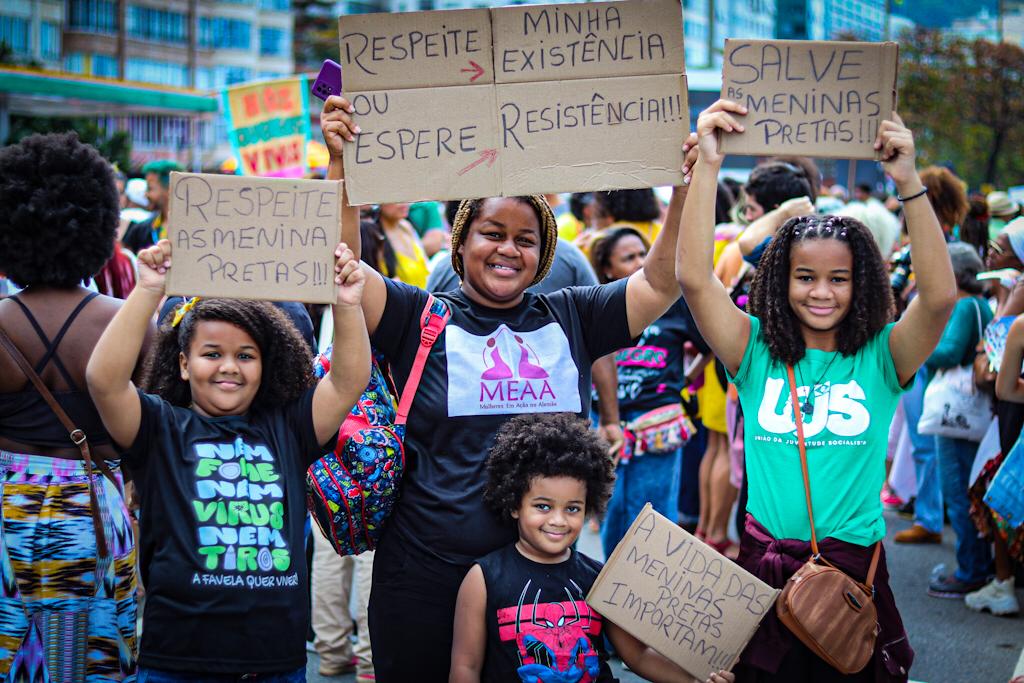
Clique aqui para Português
This article is part of a series created in partnership with the Behner Stiefel Center for Brazilian Studies at San Diego State University, to produce articles for the Digital Brazil Project on environmental justice in the favelas for RioOnWatch.
Narratives perpetuated by traditional and corporate media industries, such as Hollywood, have been constructing a collective memory and narrative that reinforce the idea that “the end of the world” will happen suddenly—a demise that will devastate the entire planet at once and affect every single human being at the same time. By waiting for an apocalyptic end to our world, we ignore all the ways in which multiple worlds end around us every day. If we allow ourselves to view the end of the world more realistically, we then see how each one-off event has the potential to take away people’s lives—each oversight by public authorities, each extreme weather event, each child murdered by the State—is already the end of the world for so many.
“In broad daylight, televised by media channels, Rio de Janeiro’s Civil Police kill 24 people in Jacarezinho, the Blackest favela in Rio de Janeiro.” — May 7, 2021
Instead of passively waiting for a global calamity, it is critical that we adopt a more realistic outlook and recognize that each destructive event that has the potential to take people’s lives is already someone’s “end of the world.” In Brazil alone, 48,000 people died due to heat waves between 2000 and 2018. Not to mention the many end-of-the-world events that no one sees, speaks, writes, or reads about. How many times does the world end for someone without being reported? Taking a closer and current look, just in the past months, several people’s worlds have ended in Rio’s favelas for a number of reasons.
“In a single night, 12 people died, most of them Baixada Fluminense residents…The neighborhood of Anchieta had the heaviest rainfall recorded since 1997, with 1 billion liters of water in 24 hours. In Acari, water levels reached people’s necks.” — January 15, 2024
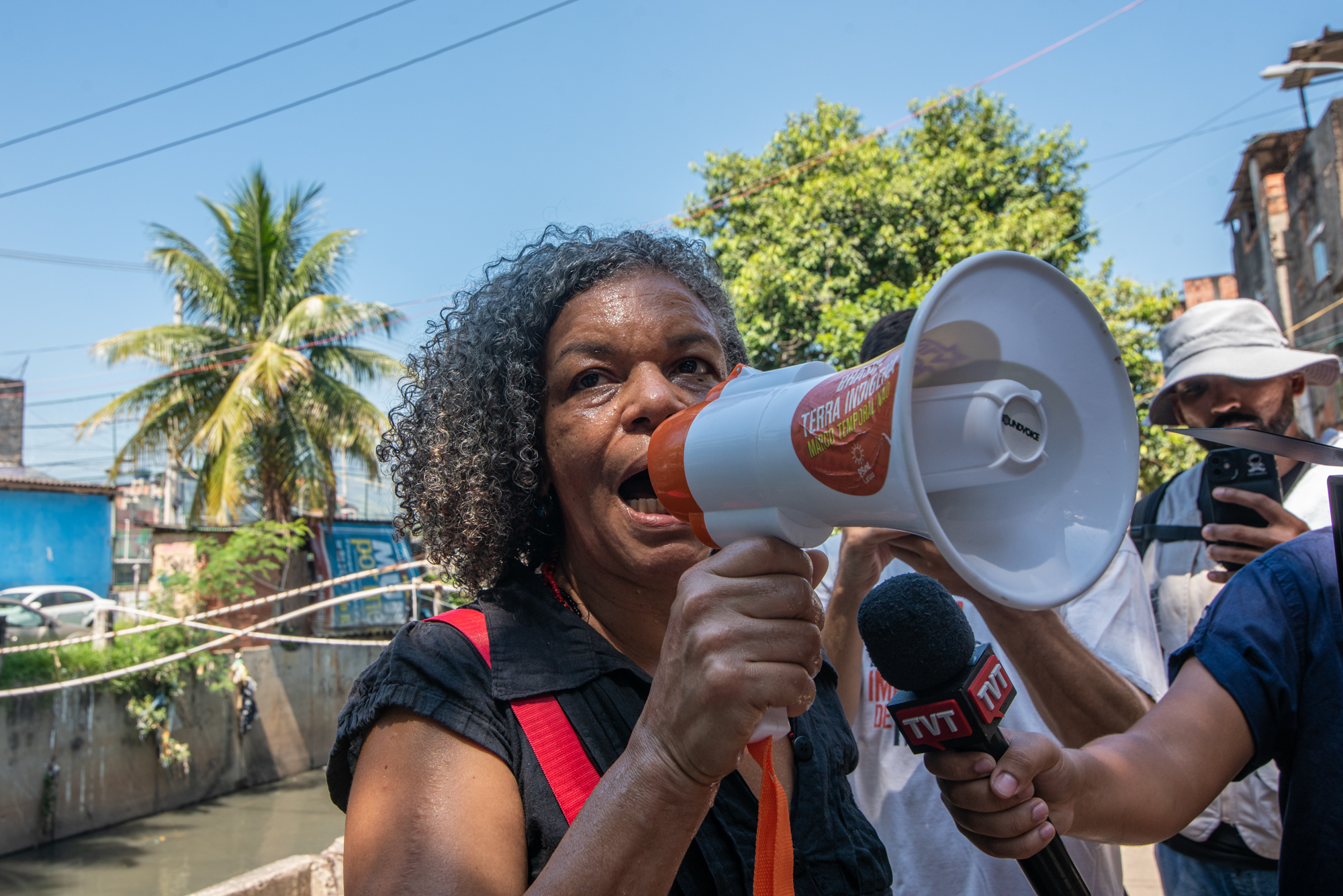
In favelas, the “end of the world” manifests itself in various forms: floods, landslides, the impact of heavy rainfall, as well as a lack of electricity and water, access to healthcare, and quality public education. All of these are caused by structural and environmental racism, by the stigmatization of favelas, and by the State’s general neglect of these areas.
“Water shortages have affected tens of thousands of residents for an average of 14 days. In other Maré residences, the water running from taps has a dark color and odour of sewage, making it unsuitable for consumption.” — December 10, 2022
As victims of this neglect, our lives become statistics. The systemic narrative maintains us as helpless, needy. Our voices silenced. We occupy the space of pain they have reserved for us.
“Between the fire and the whip, our memories remain
In a country that specializes in deleting histories
A museum ablaze, mourning is always doubled
In the skin of someone who was born with the past erased.” — They Don’t Care About Us by Cesar Mc, Ducon, Azzy and Diomedes Chinaski (Prod. Slim)
As holders of the pen and cog, through a racism that is both structural and structuring, they manage to keep us on the margins. And that’s where we remain—on the slopes, riverbanks, mangroves, and floodplains—victims of the world’s ends, which are imposed on us. Their narrative endorses our primary pains, and they expose them in daily news publications without truly taking into account our lives, which pulsate amidst the rubble left behind by the model of development and economics that keep the pen in their hands and death in ours.
Memory is the Most Important Step in Promoting Justice in Brazil’s Favelas
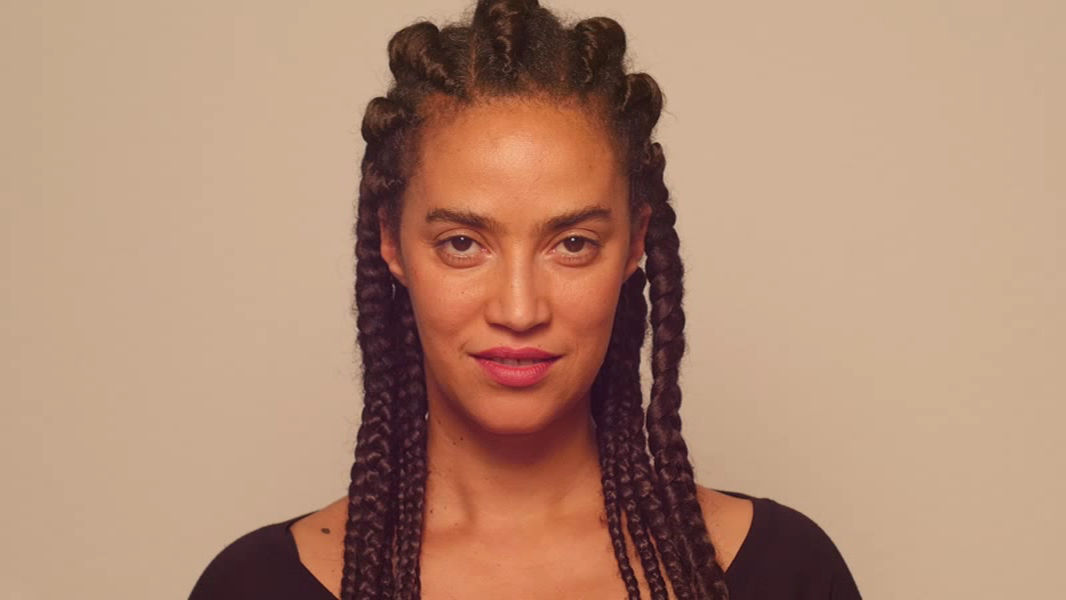
Scholar and interdisciplinary artist Grada Kilomba challenges us when she states that the very absence of our voices—those of Black women—in the center of life’s dynamics, is a confirmation that there are no spaces for us to speak freely. Memory is a central element in the construction of identity and, in Brazil, it was violently stolen during colonization, particularly from Black and Indigenous people. The impacts of this go beyond the invasion of Pindorama‘s land (indigenous Tupi word for much of what we today know as Brazil), and the physical extermination of millions of Indigenous and thousands of original peoples: it is also the Afro-Indigenous epistemicide, colonization, and whitewashing of the remaining forms of resistance, which includes our histories and worldviews.
The absence of Black voices and memories as the protagonists of narratives is itself an indictment of the oppressive structures that prevent us from being heard and seen in our truest form. As Nigerian writer Chimamanda Ngozi Adichie points out, this perpetuates a “single story” from the perspective of those in power, which limits our understanding of the world and perpetuates our marginalization.
“Only those who live can talk about life
Only those who suffer can talk about suffering
Only those who love can talk about love
Only those who develop can talk about flow.” — Breáco, by Criolo
Concerning favelas, society continues to endorse a daily routine of barbarism with several negative consequences, like necropolitics, socio-environmental injustice, and climate disasters. Residents of these ancestral territories of resistance are experts of survival, creating technologies and sciences, and even surviving the end of the world that is imposed on them daily.
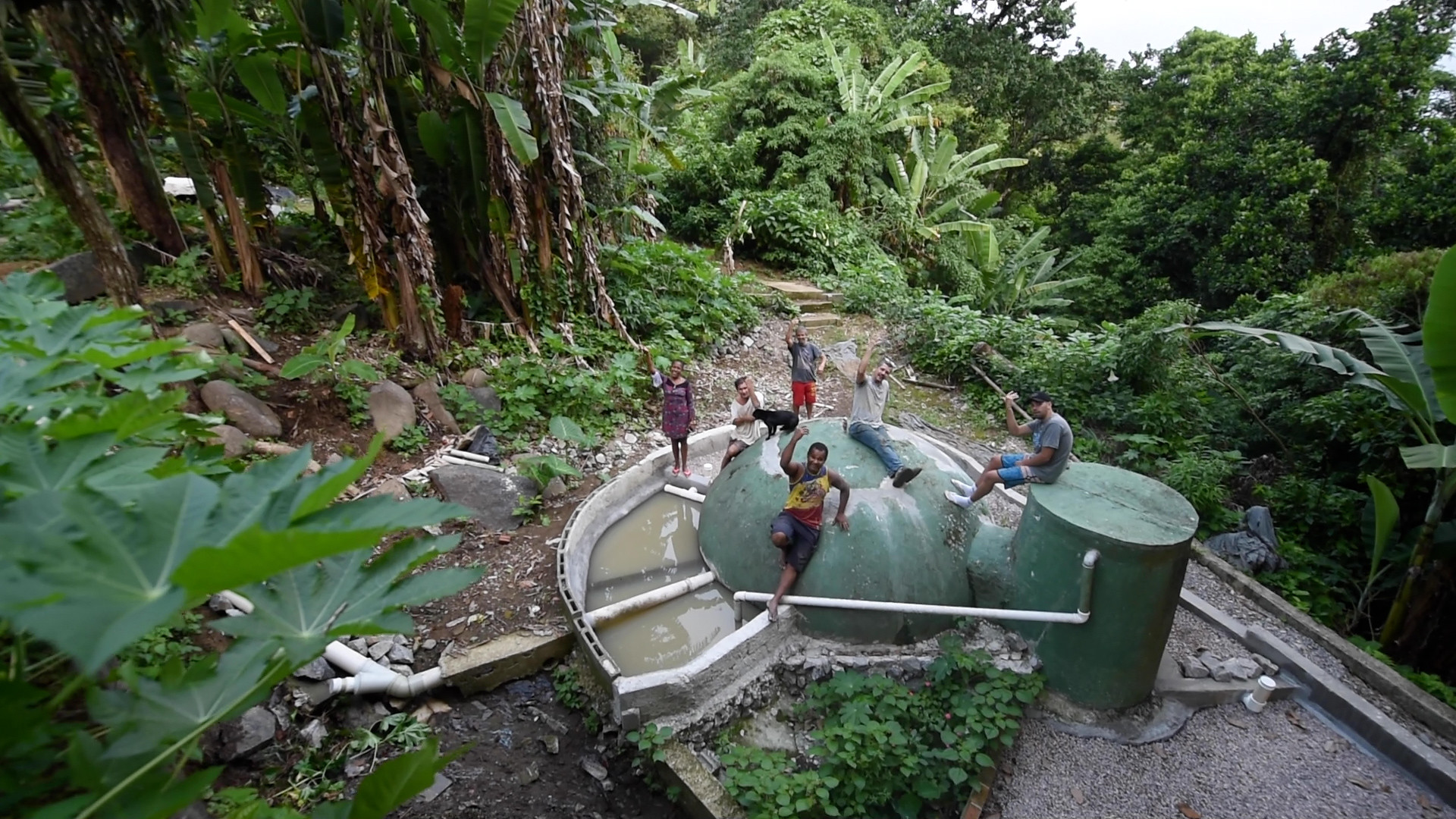
The knowledge generated on the margins of society is saturated with inventiveness and defends the right to live as its cornerstone. On the margins, there are untold powers, like stories, lived experiences, communities, and foremost, our ability to wield radical love as a political weapon for change. It is this arsenal embedded within our lives that reacts to the State’s negligence and creates mechanisms against structural violence. Innovations and solutions emerge from within our depths to face the world’s many endings.
The Future is Either Ancestral, or It Won’t Be Lived At All
In 2019, the Intergovernmental Panel on Climate Change (IPCC) released one of its most groundbreaking reports, Climate Change and Land: An IPCC Special Report on Climate Change, Desertification, Land Degradation, Sustainable Land Management, Food Security, and Greenhouse Gas Fluxes in Terrestrial Ecosystems. In it, Western science recognizes its failure to deal with the ongoing environmental crisis and calls for an ancestral response to the environmental catastrophe caused by the Modern Era and the Industrial Revolution. Thus, the urgency of visiting traditional and indigenous ways of living is situated at the center of this debate as an important intervention to stop climate change.
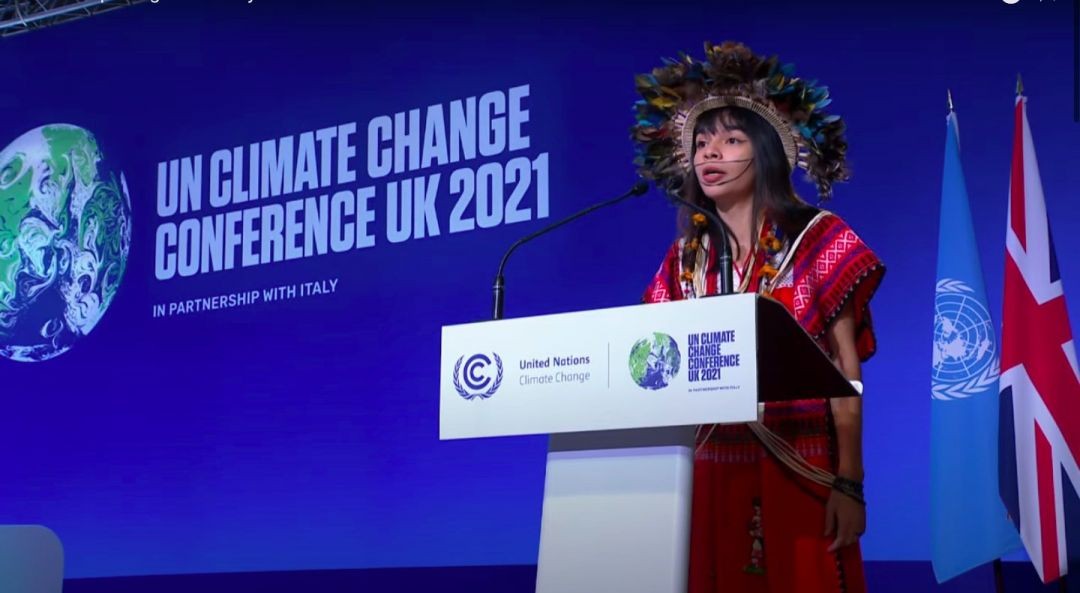
Despite being experts in resisting even the most adverse conditions, it is still not our sciences and technologies that guide public policy, academic science, or current social norms. After all, if we followed an economic development model based on Indigenous or African ways of life and science, would we be discussing the lives lost to climate crises and the impacts of environmental racism today? Surely not.
In favelas, it is through collective action that life goes on. This is owed to the interventions and actions of many women and men whose stories are not being told—with rare exceptions—that fight and brave the impacts imposed by a violent and negligent State on a daily basis. The narrative that only counts our death tolls, forgets to talk about our strength and how we generate life, creates—even in us Black women and men—the unconscious thought pattern that we are a people destined for pain and that this is intrinsic to our diasporic condition. It is necessary to challenge this single story and amplify the power of local solutions.
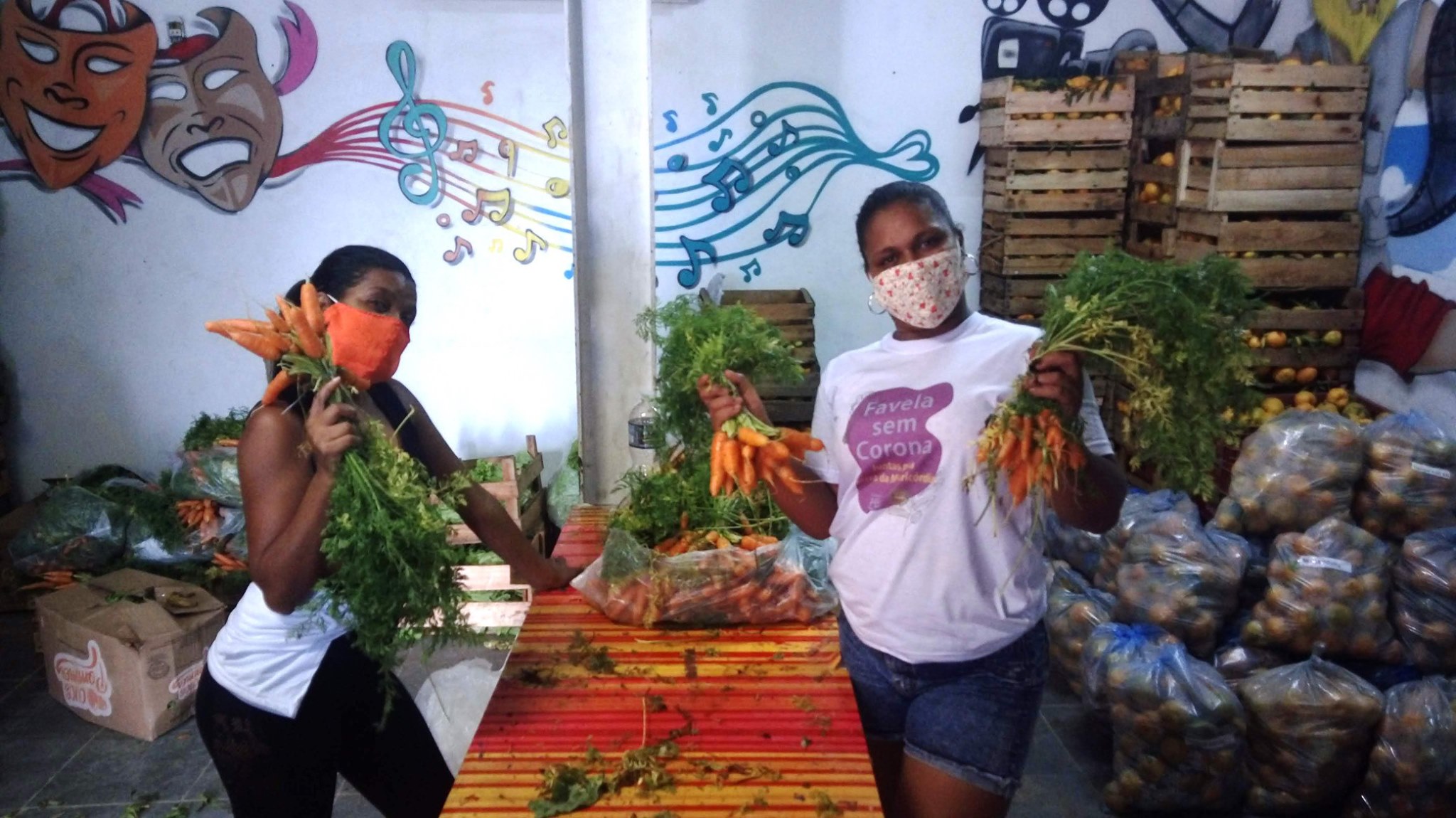
Thinking about climate justice forces us to confront the harsh reality of the risks and impacts of climate change that are already felt around the world, though not equitably. They affect more vulnerable communities, such as favelas, in a more destructive way.
“Torrential rains and flash floods have rocked Rio de Janeiro, taking a heavy toll on the city at large, including its favelas. The downpour on the evening of Monday, April 8 continued overnight and into Tuesday evening, killing at least ten and leaving several others missing.” — April 8, 2019
In the structures of urban development, we are the victims of a system that consciously selects sacrifice zones and bodies to be made vulnerable and exposed to risks. That is why especially we, Black women, are the ones creating local strategies that solve or alleviate systemic problems. We are coordinated and share solutions, adaptations, and methodologies that make it possible to postpone new ends of the world that we unfortunately face every day. Ultimately, me must keep moving forward.
We are a powerful, intelligent, inventive, and strategic people. Our memories and stories come from living libraries: our elders, who tirelessly developed paths of living the true good life amid racism and racial violence so that we, as their descendants, could transcend the barriers socially imposed on us. Despite always associating us with that dangerous and single story, I refuse to accept this narrative given and widely told by them. In the daily actions of our people, I see the world rebuilding itself, reorganizing itself, and healing itself. Looking back, we move forward towards a better future, for as the UN has stated, the way out lies in ancestral ways of life. Only ancestrality has the power to cure the ills of modernity.
Gisele Moura is a Black woman, a child of the São Paulo peripheries that beat the odds and became an Environmental Scientist at the Fluminense Federal University (UFF), where she co-found the Black Nucleus. Today, she coordinates the Sustainable Favela Network’s (SFN)* team.

